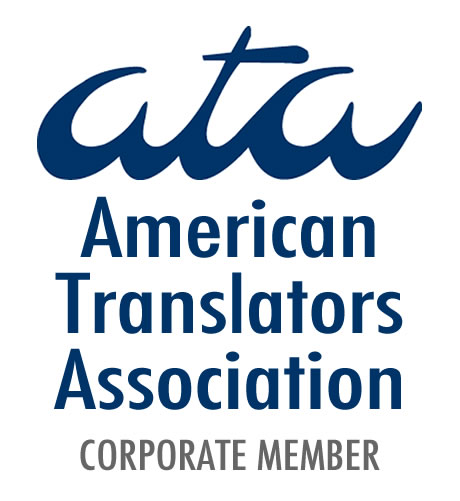
How to Spot Fake Translation Jobs: A Freelancer’s Guide
As a freelance translator, one of the most rewarding aspects of the job is the freedom to work on projects that interest you from the comfort of your own home. However, with this freedom comes a few risks—namely, the rise of fake job offers and translation scams that can waste your time and money. For every legitimate job posting, there seems to be one that’s designed to exploit translators. With the increasing demand for translation services, scammers are getting more creative in how they target freelancers, making it harder to distinguish between real and fake offers.
Whether you’ve just started your career as a freelance translator or have been working in the industry for years, it’s crucial to know how to spot fake translation jobs to avoid falling victim to fraud. In this guide, we’ll cover the five most common red flags you should look for when searching for translation work, along with tips on how to avoid translation job scams and protect your freelance career.
Why Fake Translation Jobs Are on the Rise
The translation industry has exploded in recent years, thanks to globalization and the increasing demand for multilingual content. As a result, freelance translators are highly sought after to help businesses, websites, and individuals bridge language barriers. While this has created more job opportunities, it has also made the industry a target for scammers looking to exploit the rising demand for translation services.
Fake translation job offers are designed to deceive and trick freelancers into working for little to no pay, stealing personal information, or luring them into fraudulent activities. Scammers typically prey on new freelancers who may be less familiar with the industry and may be more likely to fall for offers that seem too good to be true. By learning how to spot fake translation jobs, you can protect yourself from wasting your time on suspicious job offers and ensure that you’re only engaging with legitimate clients and agencies.
Red Flag #1: Unusually High Pay for Simple Tasks
One of the most common tactics scammers use to lure freelance translators is offering unrealistically high pay for simple or mundane tasks. This is often an obvious sign that the job is fake, as it’s unlikely that a reputable client would offer such a high rate for a basic task, such as translating a short paragraph or document.
For example, a job posting that promises $500 for translating a 300-word document is likely a scam. While it’s true that some specialized translation projects—such as legal or technical translations—can command high rates, general translation work rarely justifies such inflated pay. Scammers use these bait offers to draw you in, making you believe you’ve found a great opportunity.
What to Do: Always research industry-standard pay rates before accepting a job. The rates for translation work can vary depending on language pairs, subject matter, and your level of experience, but they are generally far less than what scammers promise. If the pay seems too good to be true, it probably is. Trust your instincts and avoid these offers.
Red Flag #2: Vague Job Descriptions and Requirements
Legitimate translation jobs should come with clear and detailed descriptions that outline the specifics of the project, including the subject matter, word count, and any required expertise. Scammers, however, tend to provide vague or generic job descriptions that don’t give you enough information to assess whether the job is suitable or not.
For example, you may come across a job posting that reads, “Looking for a translator to help with some documents. Must be fluent in English and Spanish. Pay negotiable.” This description doesn’t give you any useful details about the project, such as the type of documents involved, the deadline, or the industry expertise required. Without this information, you’re left guessing about whether the job is legitimate or not.
What to Do: Always ask for more details about the project before committing to anything. A legitimate client will be able to provide specifics about the task, including the type of document, subject matter, word count, and deadline. If the client is unwilling to provide this information or offers a vague description, it’s a red flag.
Red Flag #3: No Clear Contract or Terms of Service
Any professional job, including translation work, should involve a formal contract that outlines the scope of the project, payment terms, deadlines, and any other important details. If a job offer doesn’t include a contract or any written agreement, that’s a clear warning sign. Legitimate clients or agencies will always have a formal agreement in place to protect both parties.
Scammers, however, often avoid contracts because they don’t want to be held accountable for the work or any disputes that might arise. They may ask you to start working without signing anything, leaving you vulnerable if the project goes awry or you’re not paid as promised.
What to Do: Never start a job without a signed contract. The contract should outline the payment terms, the deadline, and any other relevant information. If the client hesitates to provide a contract or offers to work with “just a handshake,” that’s a big red flag.
Red Flag #4: Pressure to Start Immediately or Too Much Urgency
Another common tactic used by scammers is creating a false sense of urgency. They may pressure you to start the job immediately, often claiming that the project is time-sensitive or that there are other translators involved. They may even tell you that the job will expire soon or that you need to make a quick decision in order to secure the position.
This sense of urgency is designed to prevent you from taking the time to research the job properly. Scammers want you to act fast, without asking too many questions or verifying the legitimacy of the offer.
What to Do: Don’t let anyone pressure you into making a quick decision. Take the time to assess the job offer carefully, ask for more information if needed, and check the client’s credibility. A legitimate client will be patient and give you time to make an informed decision.
Red Flag #5: Request for Upfront Payment or Personal Information
Legitimate translation jobs never require you to pay anything upfront. Scammers, on the other hand, often ask for upfront fees to “secure” the job or to cover supposed costs, such as for materials, software, or registration fees. They may also ask for your personal or financial details early on in the process, which is a huge red flag.
Some scammers may even promise to pay you a large sum for your work, but only after you pay for “startup costs” or other fees. This is a classic scam that’s designed to take your money without providing any work or compensation in return.
What to Do: Never pay anything upfront to secure a job. If a client insists on an upfront payment or asks for personal information like your bank account details or social security number, walk away. A legitimate employer will pay you after the work is completed, not before.
How to Verify a Job Offer
Now that you know how to spot fake translation jobs, it’s important to verify the legitimacy of any job offer you receive. Here are some practical steps you can take to ensure that the job is genuine:
- Check the Client’s Website: A legitimate client or agency will have a professional website with clear contact information and details about the services they offer. If the website looks unprofessional or lacks contact details, be cautious.
- Search for Reviews or Testimonials: Look for reviews or testimonials from other translators who have worked with the client or agency. If you can’t find any feedback online, that could be a red flag.
- Ask for References: If the client is legitimate, they will be willing to provide references or work samples. Don’t hesitate to ask for these before committing to the project.
- Use Trusted Freelance Platforms: If you’re new to freelance translation, consider using trusted platforms like ProZ, TranslatorsCafe, or Upwork to find jobs. These platforms offer built-in protections and can help ensure that the jobs you find are legitimate.
What to Do If You Encounter a Fake Job
If you’ve come across a fake translation job, it’s important to report it to the platform or website where you found the posting. Most freelance job boards have mechanisms in place to flag and remove fake job listings. Reporting fraudulent job offers helps protect other freelancers from falling victim to the same scams.
You should also warn others in the freelance translator community by sharing your experience. Many translators are active on social media or forums, where they can help spread the word and prevent others from being scammed.
As a freelance translator, it’s essential to know how to spot fake translation jobs and avoid translation job scams. By staying alert and following the tips outlined in this guide, you can protect your career and ensure that you’re only working with legitimate clients. Remember to trust your instincts, research industry standards, and always request clear contracts and payment terms before committing to a job. By doing so, you can build a successful and scam-free career as a freelance translator.











